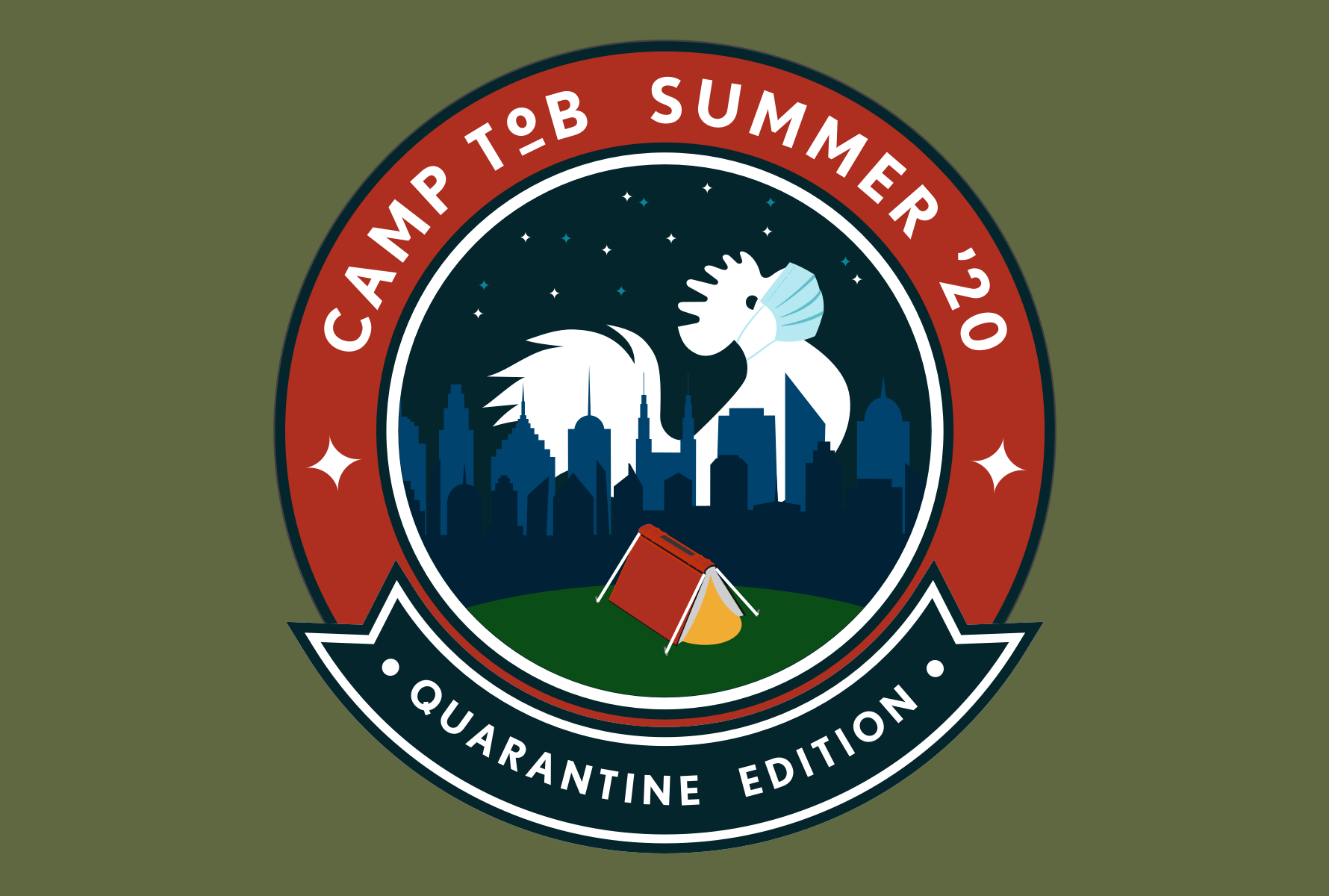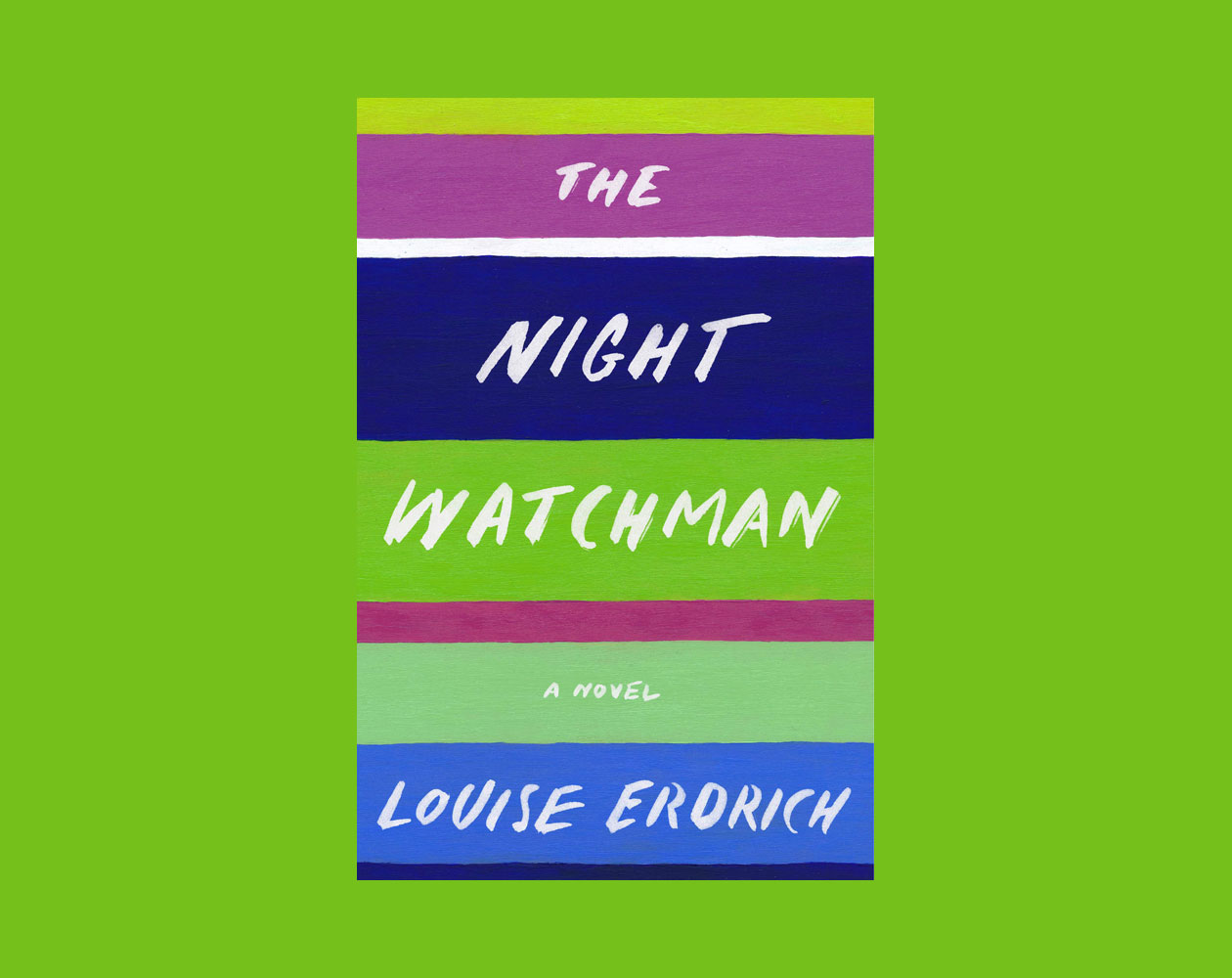Welcome to Camp ToB 2020, the summer reading program from the Tournament of Books. This summer, we’re reading six works of fiction from 2020—two books per month, two weeks per book—that the ToB fandom chose by popular vote. Each week we read half of one novel and talk it out on Wednesdays, joined in the booth by a member of the Commentariat—our Activity Leaders, in Camp parlance—to discuss our progress. At the close of each month you’ll decide which of the two books advances to our end-of-summer championship, where you’ll pick one of our three finalists to win an automatic berth in the 2021 Tournament of Books.
Thank you to our Sustaining Members for making Camp ToB possible. Please take a moment to find out why The Morning News and the Tournament of Books depend on your support, and consider becoming a Sustaining Member or making a one-time donation. (Plus, Members get 50 percent off all Camp ToB gear and everything else at our store.) Thank you!
Never miss a match: Sign up for the Rooster newsletter for ToB updates.
Andrew Womack: Hello, and welcome to our discussion on The Night Watchman’s conclusion. The second half of the book begins with the shocking revelation that Vera, Patrice’s sister, who had gone missing, is in fact alive—though barely. Then the moment we’ve all been waiting for: Thomas and other members of the Turtle Mountain Band of Chippewa travel to Washington, DC, to testify at Congress during the hearing of House Concurrent Resolution 108, which aims to strip many tribes of federal protections.
Our Activity Leader this week is Sarah Bernards. Welcome, Sarah! Now let’s get started with you introducing yourself to the campers.
Sarah Bernards: Hi Andrew, thank you for having me. Reading has always been a big part of my life. As an introvert, stories have always given me a place to go when I was too shy. They became a bigger part of my life as I grew older and had children and wanted them to understand parts of the world that might not otherwise know. I make it a point to read every day and have a home filled with books with diverse content and genres. In 2012 I was introduced to the Tournament of Books and have followed it ever since. I probably follow it closer than any other book award out there.
Andrew: So let’s just cut to the ending—how did you feel about how everything tied together?
Sarah: I was getting nervous toward the end because it felt there was still a lot of story I wanted to know more about. I wanted more of Thomas and Vera. Patrice was one of my favorite characters though, and I felt the focus was right with her. It ended up tying up nicer than expected and was pleasantly surprised with Patrice’s ending.
Andrew: What did you think might happen with Patrice?
Sarah: I felt that Patrice was not someone who would just marry someone for the sake of marriage and was afraid she would end up with Wood Mountain and live the life expected of her rather than the life she wanted.
Andrew: I agree, like the relationship with Wood Mountain was there to test those waters and show us more of her character, as someone who wasn’t going to do that. The big surprise for me in the second half was Vera’s return. The first half had me expecting something awful, and the book certainly confirmed that was the case—though I assumed she was dead. I thought the very beginning of this second half was masterful, how we get these brief glimpses of her, though she’s unnamed—appropriately enough—in the 92-word chapter “Agony Would Be Her Name,” the entirety of which is:
The men smelled of hot oil, liquor sweat, spoiled meat, a million cigarettes, and they spoke in the language of the wolverine. Their beards ground against her face until her cheeks were raw. If she wanted to get away, she’d have to run through knives. If she got through the knives, she would have no skin left to protect her. She would be raw flesh. She would be a thing. She would be agony. Giant motors gnashed behind the wall. Occasionally, like a reverberating gong, she heard her mother call her name.
The way this cuts in was just so stunning, and really delivered on the tension that was already at a fever pitch in the first half. Did Vera’s return surprise you at all?
Sarah: You are so right, I also expected a very different story for Vera. In fact, the first half of the novel had me expecting such a different story for both Vera and Patrice. I will say that Vera returning was when Erdrich hooked me so tight into the story I did not ever want to put it down. I thought for sure she was dead and Patrice’s life would be taking a different turn and I was not so sure Patrice wanted that. To me Erdrich has a way in this book of writing these amazingly strong independent women who fight many life challenges and you feel yourself fighting alongside them. You feel the emotional and physical pain right alongside them. In the chapter “What She Needed” I felt every ounce of Vera’s agony. When Erdrich was describing what the men were doing to Vera, to actually have the reader feel those men… it made me an Erdrich reader for life.
Andrew: Yes, that was a grim chapter, in which we find out that Vera was left for dead in an alley in Duluth. It also begins to detail the horror of her situation: that the crime ring in Minneapolis had turned her into an addict and sold her into sexual enslavement. This part of the story was inspired by real stories of sex trafficking of Native women.
So Thomas and the other tribal representatives make it to Washington, DC, to testify. What was your take on the scene where Thomas is finally facing Sen. Watkins?
Sarah: I have had to think on this one a bit because I loved this particular chapter, but it was also where I wish we would have had more. I wanted more thoughts from Thomas and Millie. I also realize that because this is based on real events it would be more difficult to expand on it in the context of personal thought. Watkins was a horrible man and I wanted more depth to this.
The Night Watchman by Louise Erdrich
It is 1953, and Thomas Wazhashk and the other Chippewa Council members at the Turtle Mountain Reservation are facing a new Congressional bill that threatens the rights of Native Americans to their land and their very identity. Also living in this impoverished reservation community is Patrice Paranteau, whose beloved older sister, Vera, moved to the big city of Minneapolis, hasn’t been in touch, and is rumored to have had a baby. Determined to find Vera and her child, Patrice makes a fateful trip to Minnesota that introduces her to unexpected forms of exploitation and violence, and endangers her life.
Book description excerpted from publisher’s summary and edited for length.
Andrew: I know what you mean. He’s terrible, but something about how Erdrich used excerpts of Watkins’s cross-examination of her grandfather, Patrick Gourneau, for much—maybe all?—of the cross-examination (you can see the transcript here) made me feel like there was an overreliance on history there.
Sarah: I think that was what bothered me—there was so much room to go further with this particular part of the story but Erdrich chose not to. It may have been out of faithfulness to her grandfather and the actual events, which I respect, but it left me feeling like the novel itself was missing something in the context of its characters.
Andrew: I liked how the other voices in the novel were intercut further along, and how that’s referenced in the very official-looking joint hearing announcement on the first page of the chapter, which includes:
Statement of Thomas Wazhashk,
Chairman of the Advisory Committee
Turtle Mountain Band of Chippewa Indians,
North Dakota,
as well as statements by
other committee members,
jewel bearing plant employees,
a ghost, a PhD candidate,
and a stenographer.
And then we do get a brief appearance from said ghost, Roderick, in Thomas’s thoughts in that section. But I would have liked more there. What about you?
Sarah: I think what I appreciated most about the novel is Erdrich staying true to the history of what happened, even through her fictional novel. We are not taught this part of our history in schools anymore because it does not fit a certain narrative. My grandparents were in their late teens, early 20s, when this bill was written and my dad was two years from being born, so to say this happened a long time ago just seems false. I think why I liked this book so much is because this is recent history and we have a chance now, at this very moment, to say we can continue allowing these types of bills to be written or we can fully make a change to our country’s narrative and say our grandparents or our parents made terrible mistakes that people are still paying for and we have the capability right now to fix those wrongs and to make the changes for the betterment of all people.
Andrew: You’re right—this isn’t ancient history. This is now, and so we should shift to the present day. This month, the Supreme Court ruled that much of eastern Oklahoma is—in terms of criminal law, not land rights—a reservation of the Muscogee (Creek) Nation. Knowing what you know now after reading The Night Watchman, how would you view this new Court decision?
Sarah: I am proud that five of the justices voted in favor of this. Reading The Night Watchman helped me to understand this perspective a little more. Where I live, the Confederated Tribe here has their own police department and are known for doing great things for their community. I think people think with decisions like this that it means people will live a lawless life, which is so beyond wrong. To me all this means is that they are now able to police their own lands, as it should be.
Andrew: It’s certainly a decision that could affect real, human lives, and that does matter. Not exactly like changing the name of your football team 50 years too late because it’s finally become bad for business.
Thank you for joining us, Sarah! And with that, let’s head to the comments to continue the discussion on the second half of The Night Watchman!
The Camp ToB 2020 Calendar
- June 3: The City We Became through page 214 (finish chapter 7)
- June 10: The City We Became to the end
- June 17: Sharks in the Time of Saviors through page 191 (finish part 2)
- June 24: Sharks in the Time of Saviors to the end
- July 1: VACATION
- July 8: The Night Watchman through page 227
- July 15: The Night Watchman to the end
- July 22: Such a Fun Age through part two
- July 29: Such a Fun Age to the end
- Aug. 5: Writers & Lovers through page 165
- Aug. 12: Writers & Lovers to the end
- Aug. 19: Weather through page 99
- Aug. 26: Weather to the end
- Sept. 2: Announce summer champion



